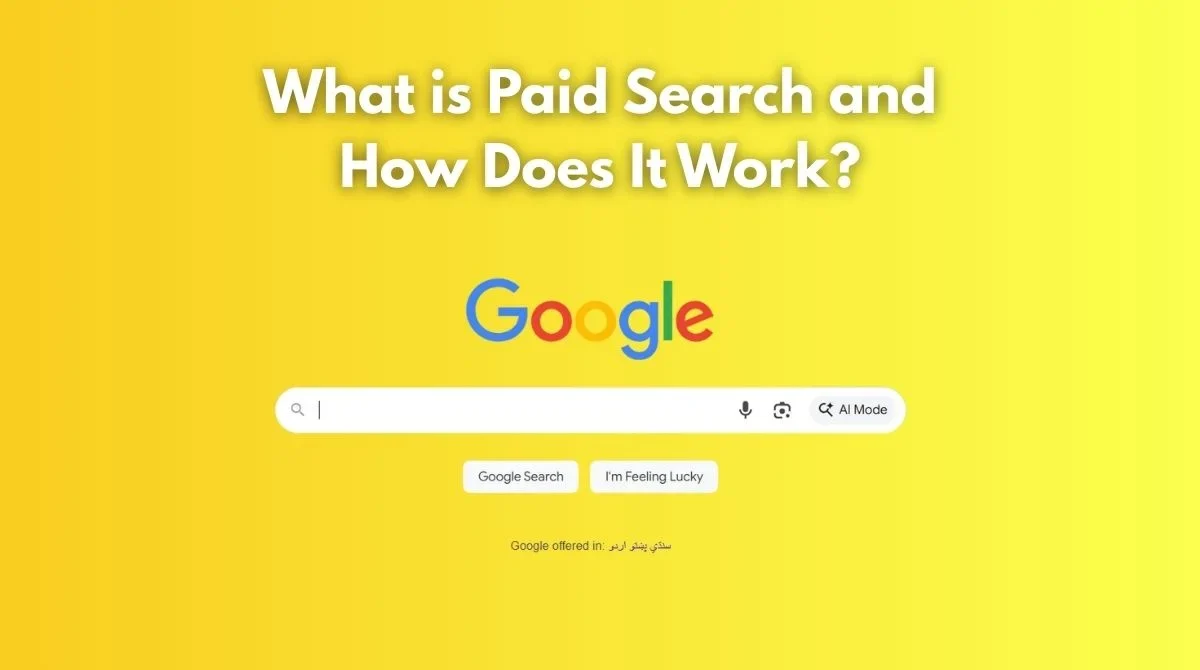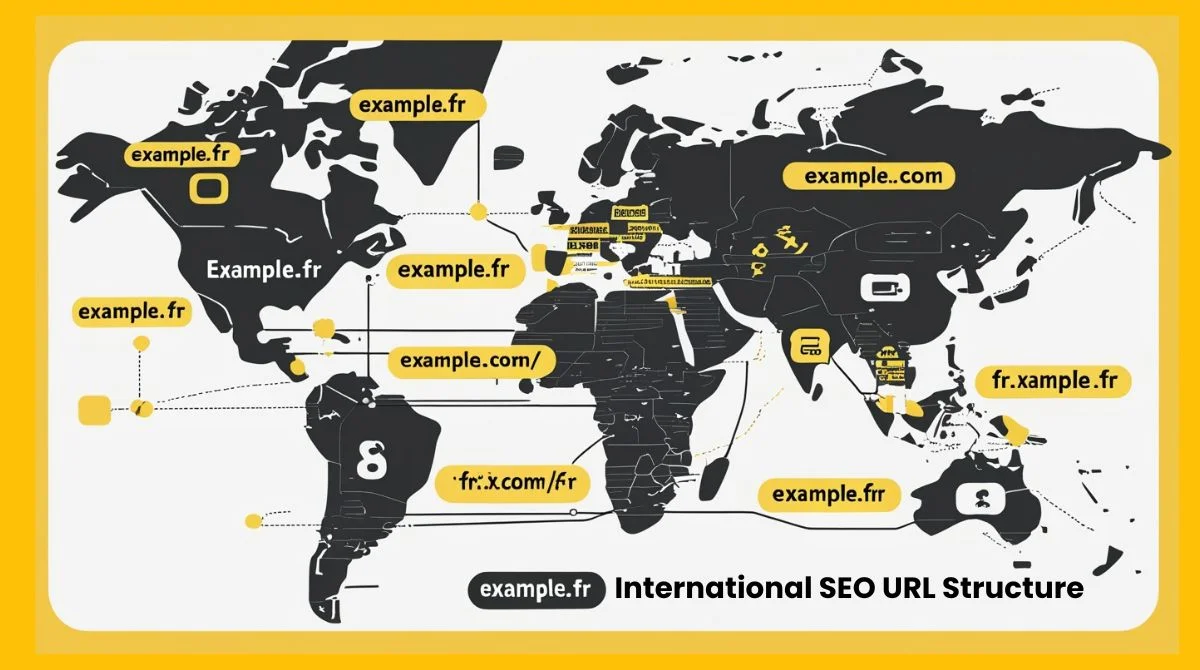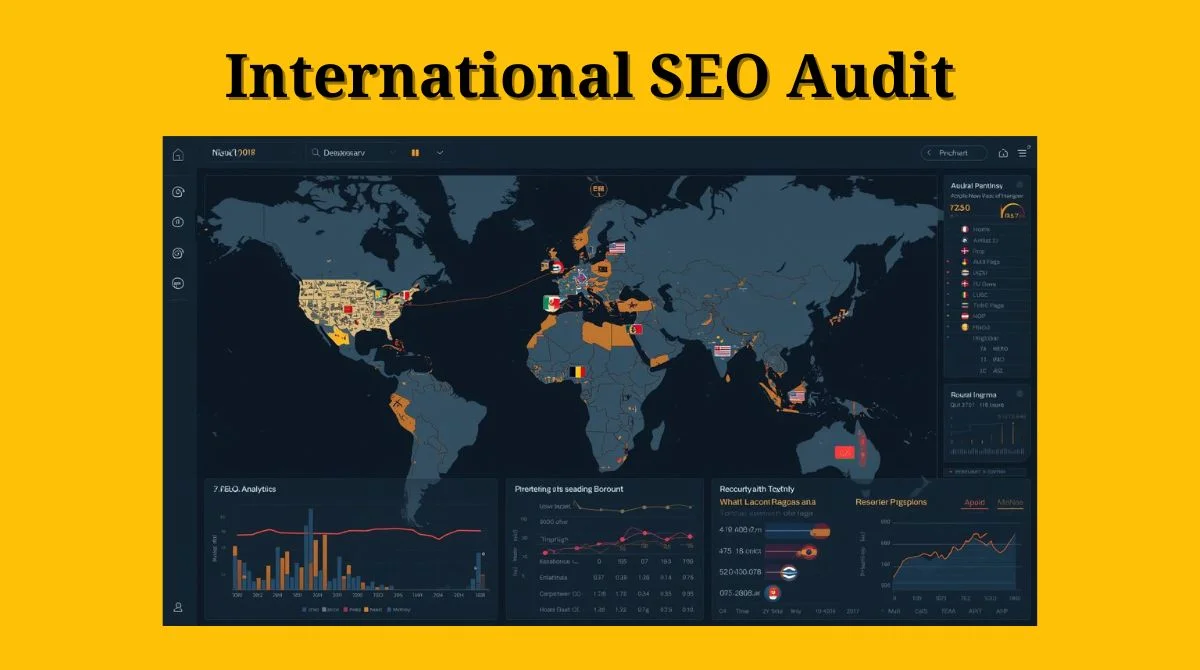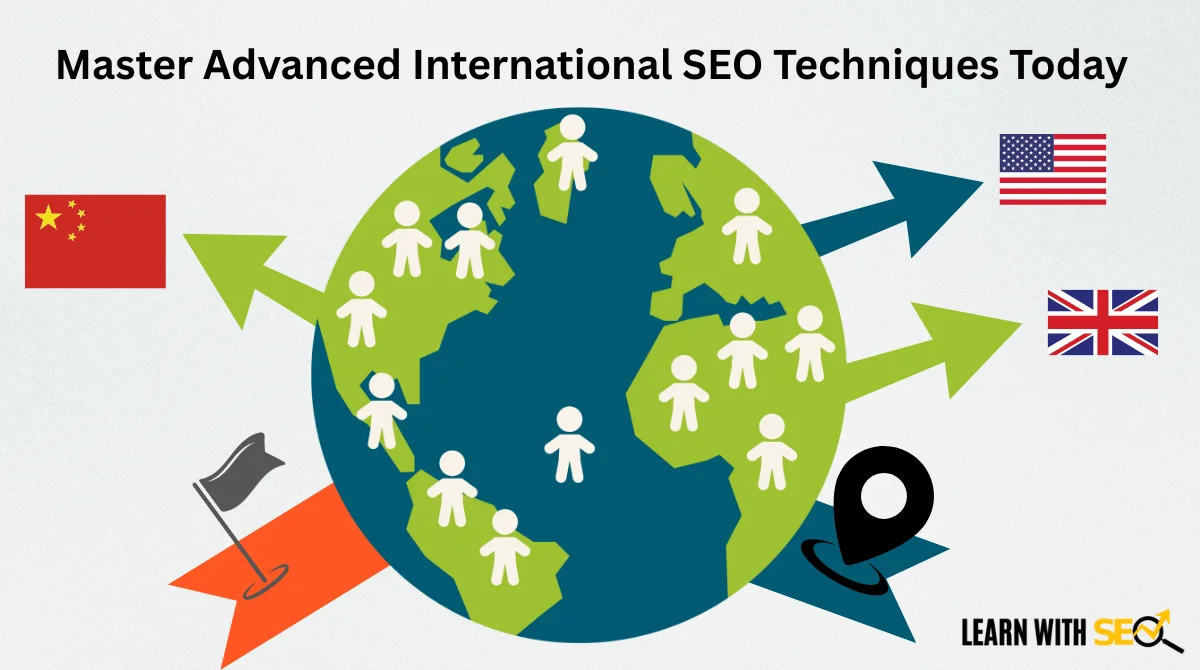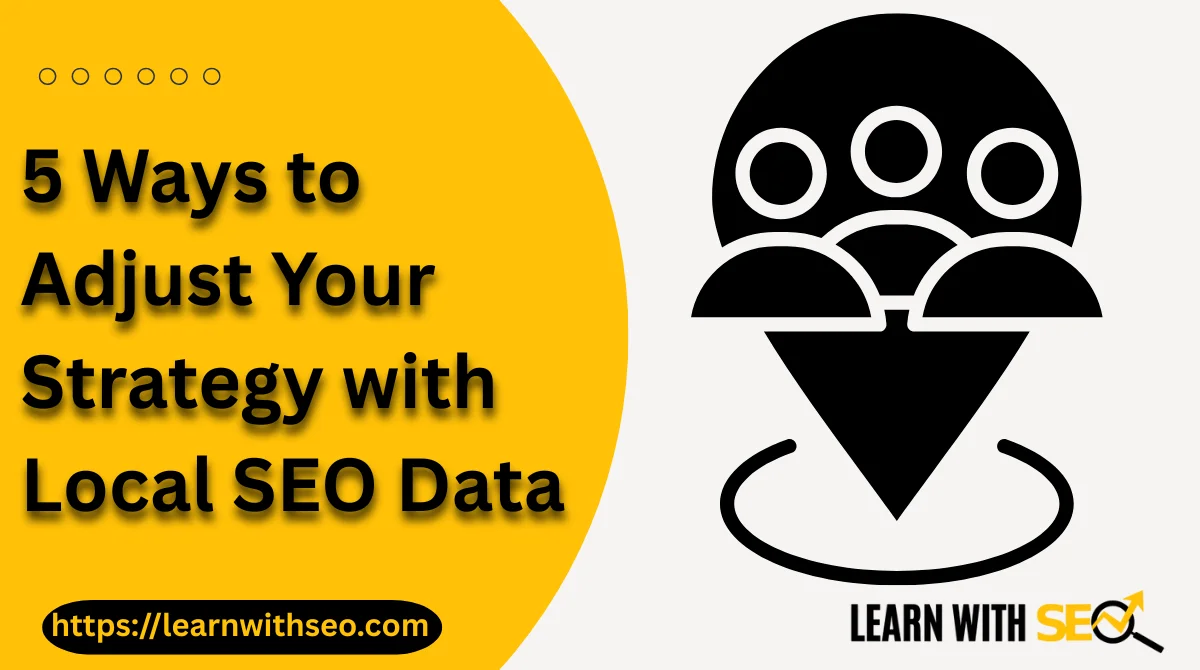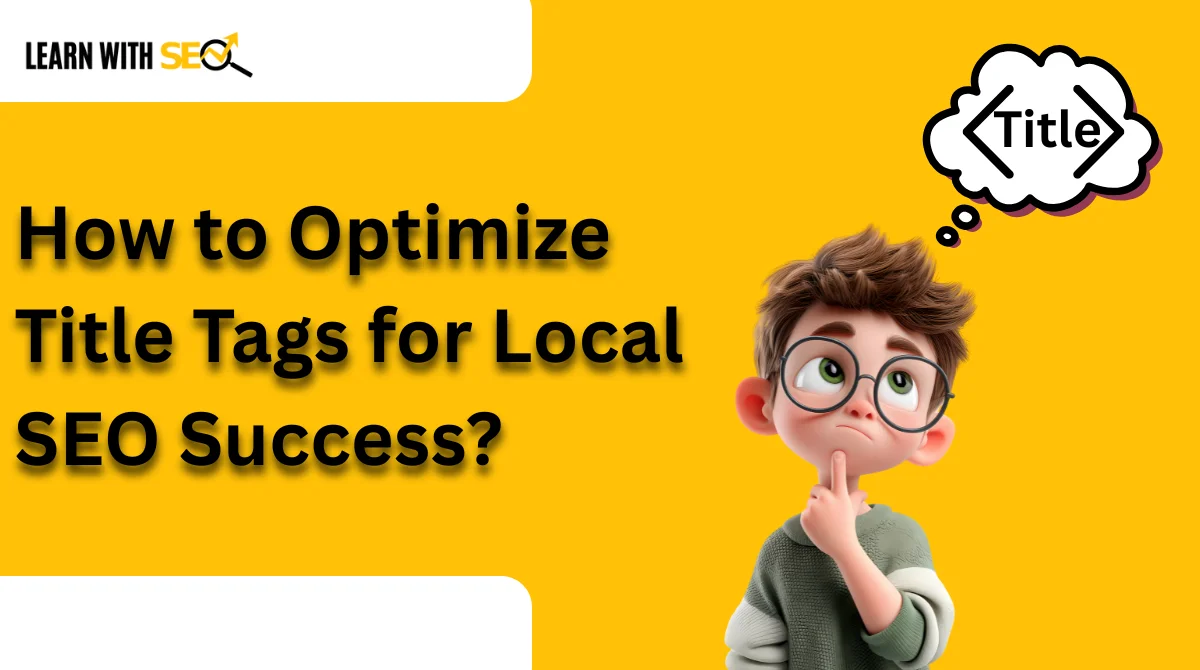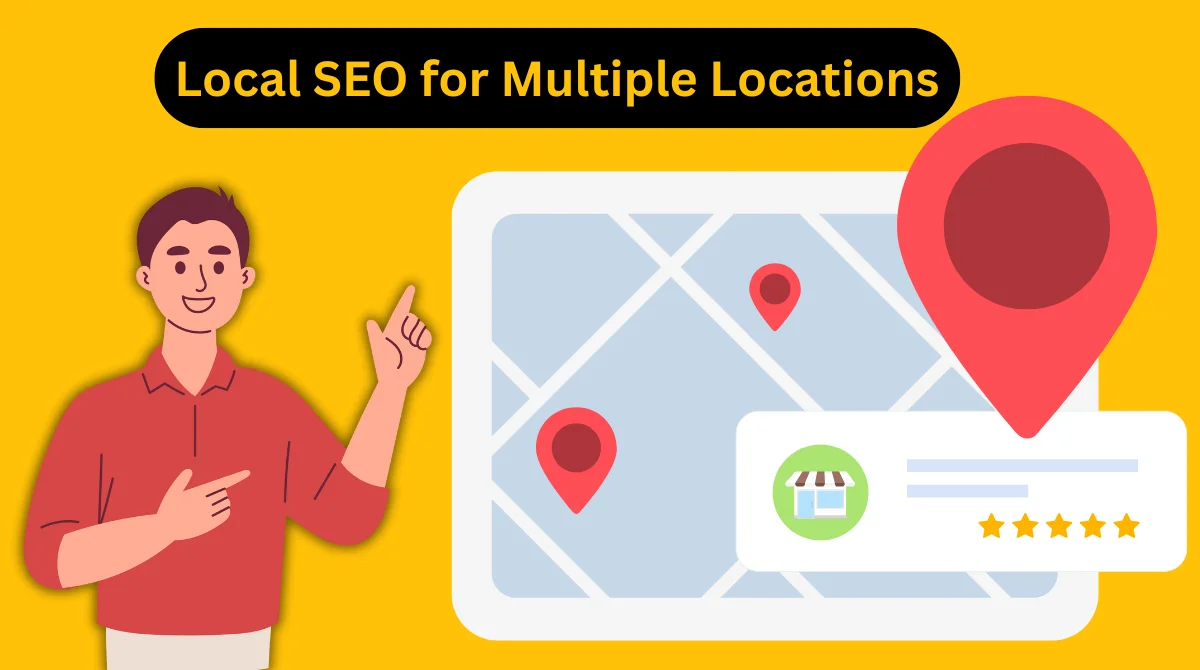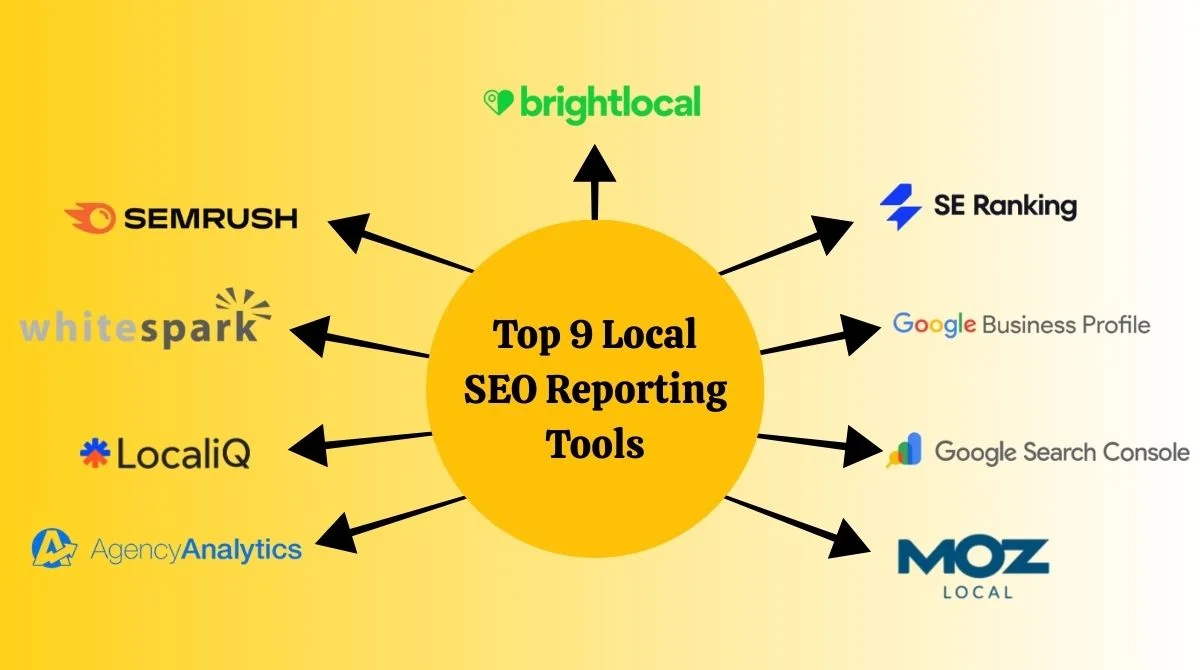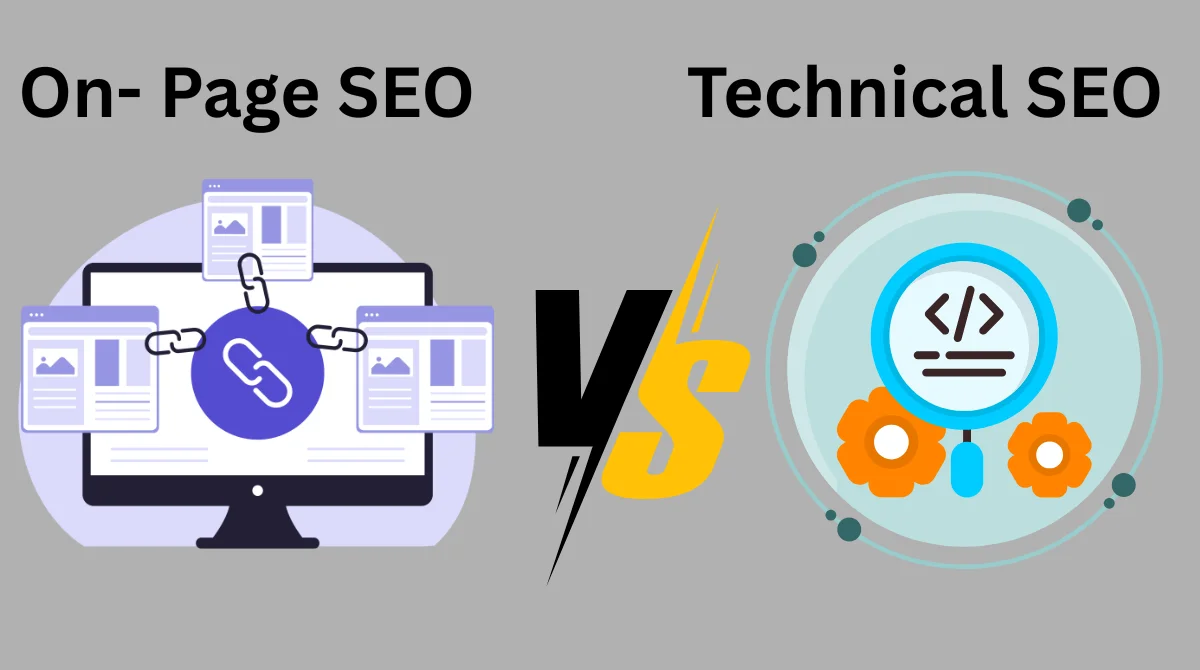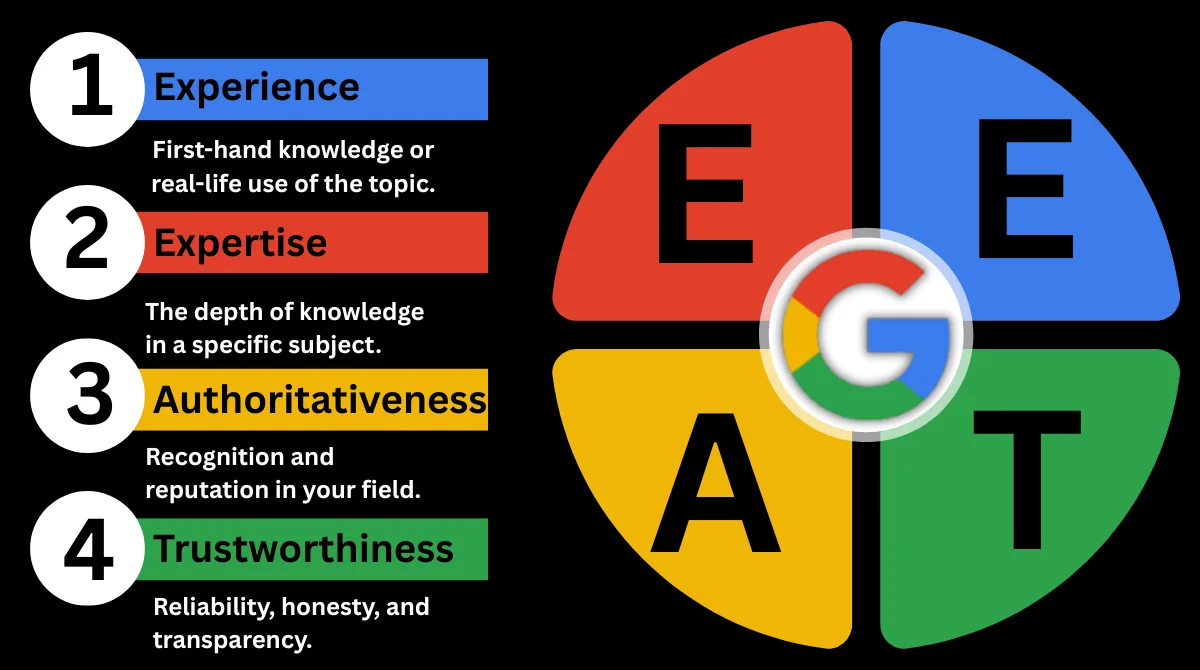- What is Paid Search?
- How Does Paid Search Work?
- Key Components of Paid Search
- Types of Paid Search Ads
- Benefits of Paid Search
- How Much Does Paid Search Cost?
- Getting Started with Paid Search
- Best Practices for Success
- 2025 Paid Search Trends
- Common Paid Search Mistakes to Avoid
- Measuring Paid Search Success
- Is Paid Search Right for Your Business?
- Getting Professional Help
- Conclusion
What is Paid Search?
Paid search is a form of digital marketing in which companies pay to have their advertisements shown on search engine results pages.
When someone searches for specific keywords, these ads appear above or below the regular search results. You only pay when someone clicks on your ad, which is why it’s also called Pay-Per-Click (PPC) advertising.
Think of paid search as renting prime real estate on search engines. Instead of waiting for customers to find you naturally, you pay for immediate visibility when they search for products or services like yours.

How Does Paid Search Work?
The Auction System
Every time someone searches on Google or other search engines, an instant auction happens behind the scenes. Here’s how it works:
- Step 1: User Searches. An individual enters a search query into the search engine.
- Step 2: Auction Begins. The search engine checks which advertisers want to show ads for those keywords.
- Step 3: Winner Selection. The search engine picks winners based on bid amount and ad quality, not just who pays the most.
Key Components of Paid Search
- Keywords: These are the terms or phrases you want your ads to show up for. Select keywords that align with what your audience is really searching.
- Ad Copy: This is the text people see in your advertisement. It should be clear, compelling, and relevant to the search query.
- Landing Pages: When someone clicks your ad, they go to a specific page on your website. This page should match what your ad promised.
- Bidding: You set the maximum amount you’re willing to pay for each click. Higher bids can improve your ad position, but quality matters too.
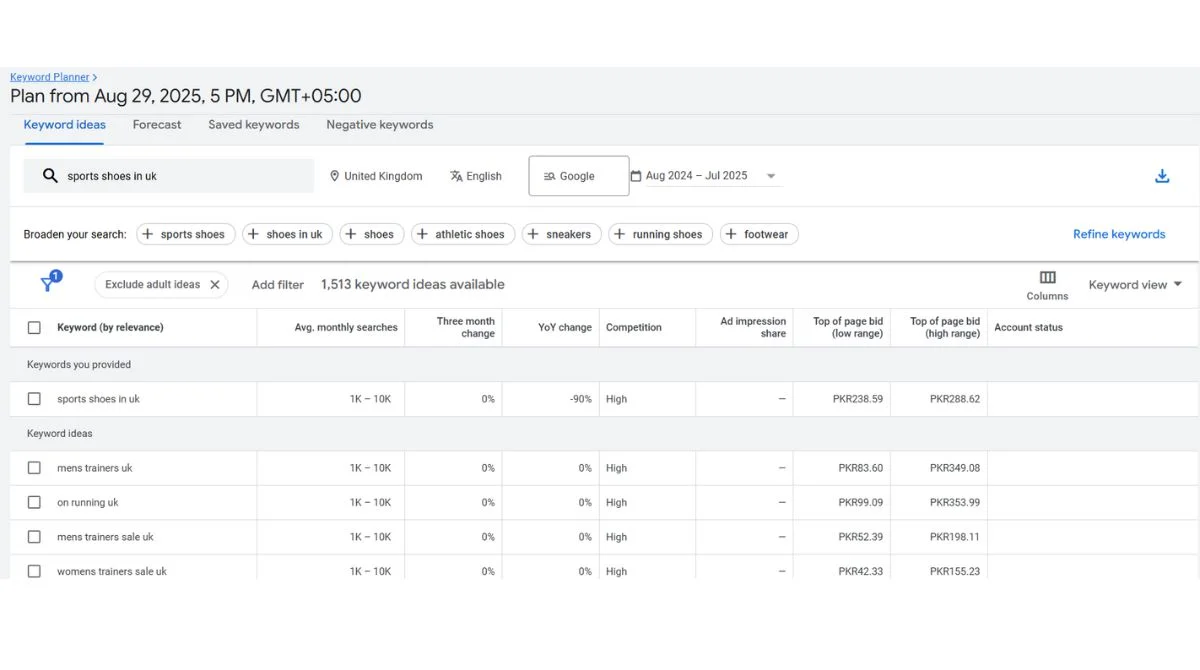

Types of Paid Search Ads
1. Search Ads
These text ads are displayed at the top and bottom of the search results page. They include a headline, description, and website link.

2. Shopping Ads
These show product images, prices, and store names. Perfect for e-commerce businesses selling physical products.
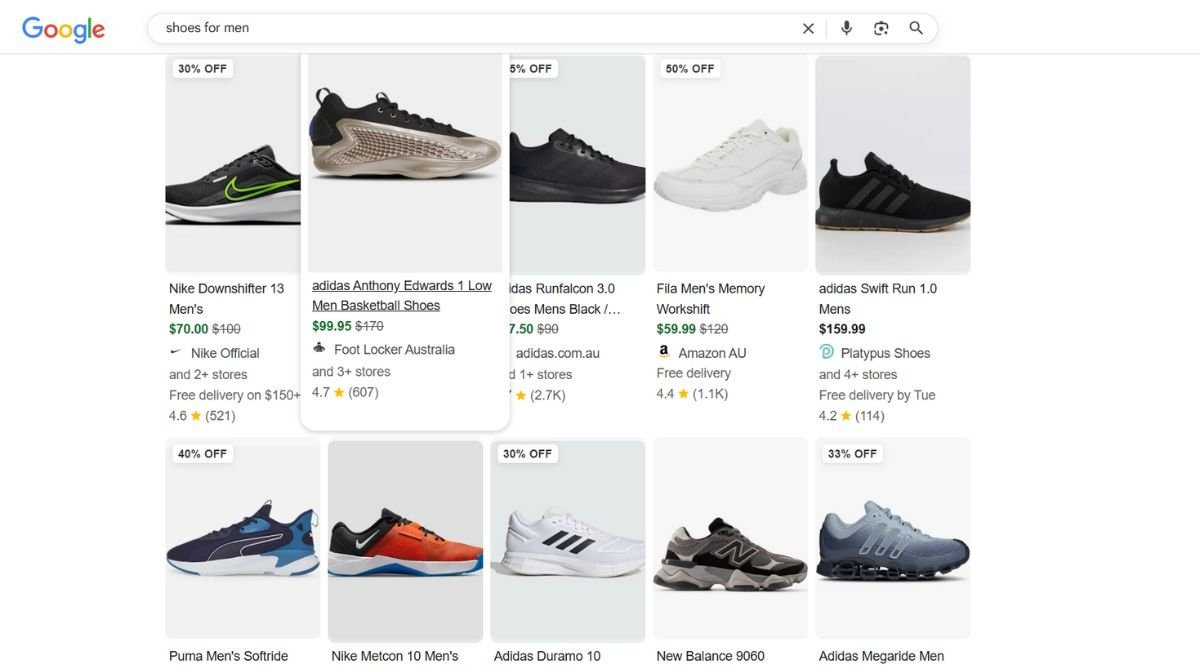
3. Local Ads
These help local businesses appear in location-based searches. They usually display details such as the address, contact number, and operating hours.

Benefits of Paid Search
- Immediate Results: Unlike organic SEO, which takes months, paid search can drive traffic to your website within hours of launching a campaign.
- Precise Targeting: You can target specific keywords, locations, devices, and even times of day. This helps you reach exactly the right customers.
- Measurable ROI: You can monitor each click, conversion, and amount spent. This makes it easy to see which campaigns are profitable.
- Budget Control: Set daily or monthly spending limits to stay within your marketing budget. You can start small and scale up successful campaigns.
- Competitive Advantage: Even if competitors rank higher organically, you can appear above them with well-optimized paid ads.
How Much Does Paid Search Cost?
The cost varies widely depending on your industry and keywords. Here are the main factors:
- Keyword Competition: Popular keywords cost more because more businesses want to advertise for them.
- Industry: Legal, insurance, and finance keywords often cost $20-50+ per click. Local services might cost $2-10 per click.
- Quality Score: Search engines reward relevant, high-quality ads with lower costs and better positions.
- Geographic Location: Targeting major cities typically costs more than smaller markets.
Getting Started with Paid Search
Choose the Right Platform
- Google Ads: The largest search advertising platform, reaching billions of daily searches.
- Microsoft Advertising (Bing): Often less competitive with lower costs, especially for B2B audiences.
Set Clear Goals
Define what success looks like before you start. Common goals include:
- Increase website traffic.
- Generate more leads.
- Drive online sales.
- Boost brand awareness.
Research Keywords
Use tools like Google Keyword Planner to find keywords your customers actually search for. Focus on:
- Relevant terms related to your business.
- Keywords with commercial intent.
- Long-tail phrases are less competitive.
Create Compelling Ads
Write ads that clearly communicate your value proposition. Include:
- Clear headlines that match search intent.
- Specific benefits or offers.
- Strong calls-to-action.
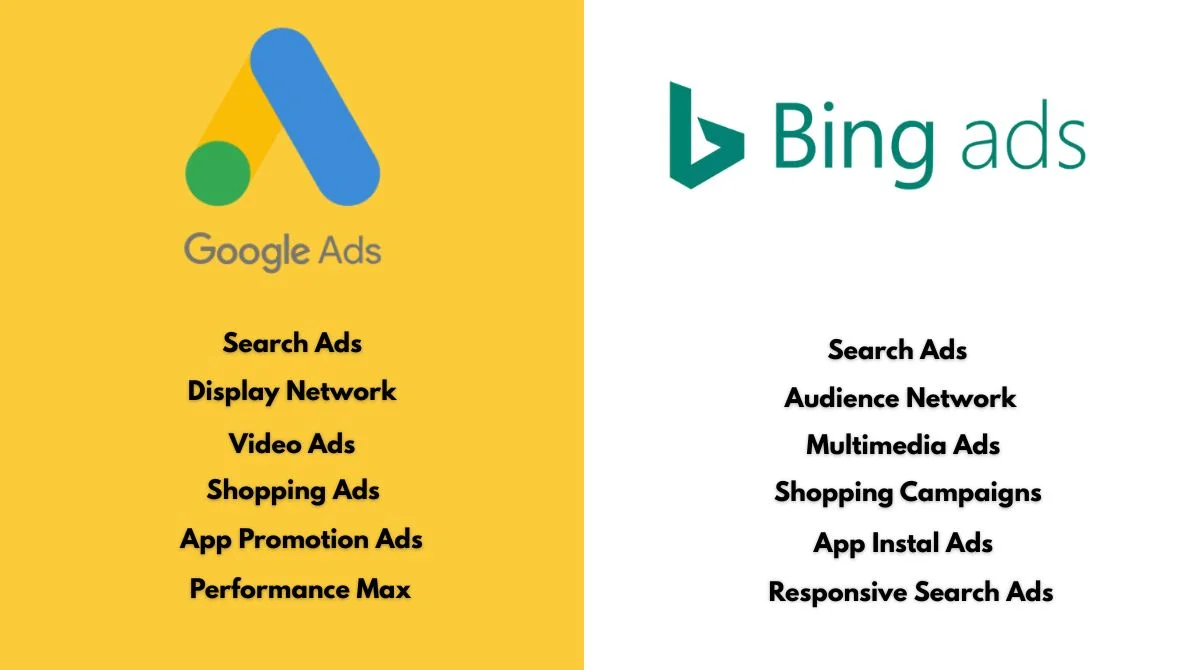
Best Practices for Success
- Start Small and Test: Begin with a modest budget and test different ads, keywords, and landing pages. Scale up what works best.
- Monitor Performance Regularly: Check your campaigns weekly to identify opportunities for improvement and pause underperforming elements.
- Optimize Landing Pages: Ensure your landing pages match your ad promises and make it easy for visitors to take action.
- Use Negative Keywords: Add negative keywords to prevent your ads from showing for irrelevant searches. This saves money and improves performance.
- Track Conversions: Set up conversion tracking to measure which campaigns actually drive business results, not just clicks.
2025 Paid Search Trends
AI-Powered Automation
Google Ads and Microsoft both offer AI tools for image creation and bid optimization, making campaign management more efficient than ever.
Privacy-First Approach
Leveraging first-party data will become even more essential as privacy regulations reshape the digital advertising landscape.
Advanced Attribution
Marketers can anticipate greater efficiency and precision in their campaigns thanks to improved cross-channel tracking and predictive analytics.
Increased Competition
Google Search CPCs are up 45% compared to previous years, making strategic optimization more important.
Common Paid Search Mistakes to Avoid
- Broad Keywords Only: Using only broad, expensive keywords wastes budget. Include specific, long-tail keywords that convert better.
- Ignoring Mobile Users: Most searches happen on mobile devices. Ensure your ads and landing pages work perfectly on phones.
- Poor Ad-to-Landing Page Match: If your ad promises something but your landing page doesn’t deliver, people will leave quickly.
- Not Using Ad Extensions: Ad extensions provide extra information and make your ads more prominent. Use them to improve performance.
- Setting and Forgetting: Successful campaigns need regular attention and optimization. Set aside time for ongoing management.
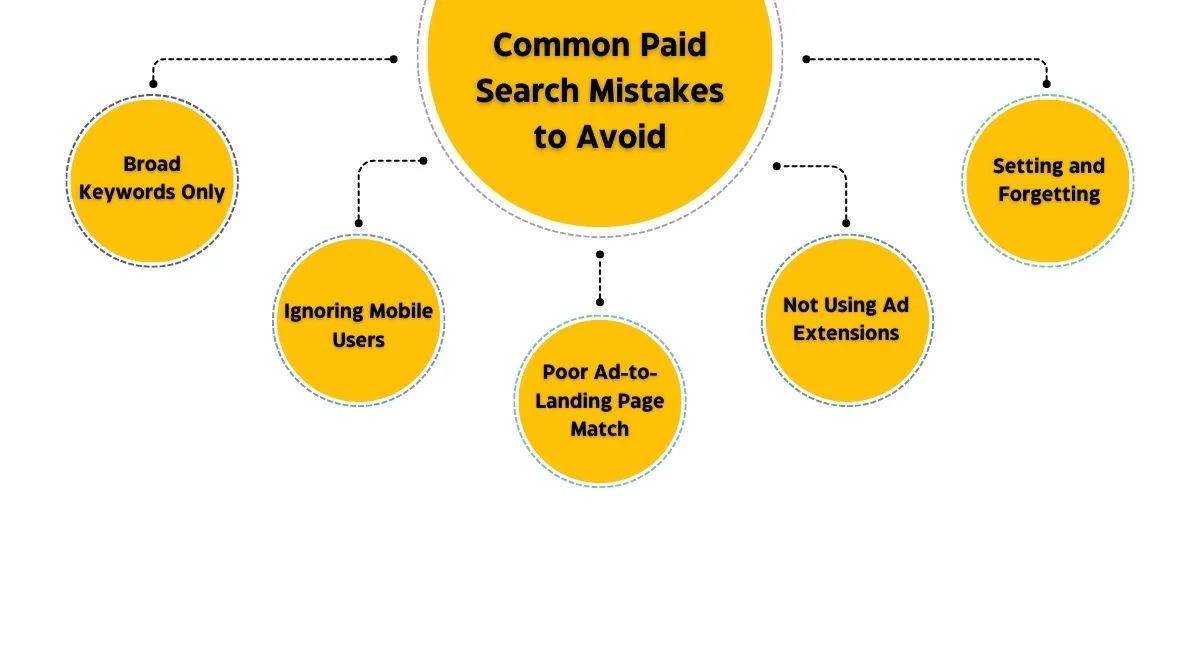
Measuring Paid Search Success
Key Metrics to Track
- Click-Through Rate (CTR): The share of viewers who click on your ad once it’s shown to them. Higher CTRs indicate relevant, compelling ads.
- Cost Per Click (CPC): The average amount you pay for each click. Monitor this to control spending.
- Conversion Rate: The percentage of clicks that result in desired actions like purchases or sign-ups.
- Return on Ad Spend (ROAS): How much revenue you generate for every dollar spent on advertising.
- Quality Score: Search engines rate your ads based on relevance and user experience. Higher scores mean lower costs.
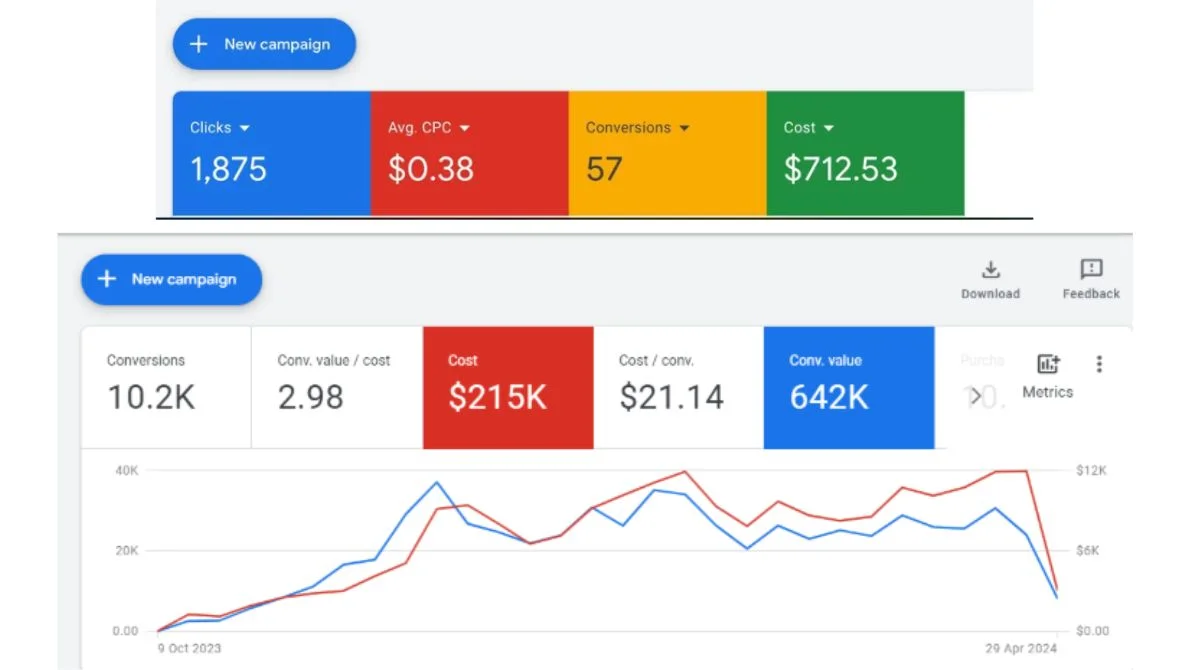
Is Paid Search Right for Your Business?
Paid search works well for most businesses, but it’s especially effective if you:
- Sell products or services that people actively search for.
- Want immediate traffic and results.
- Have competitors already been using paid search?
- Can track and measure conversions.
- Have a budget for ongoing optimization.
Getting Professional Help
Many businesses benefit from working with paid search experts or agencies. Consider professional help if you:
- Lack time to manage campaigns daily.
- Want to avoid costly beginner mistakes.
- Need advanced strategies for competitive markets.
- Want access to premium tools and insights.
Conclusion
Paid search connects you with customers exactly when they’re searching for your products or services. Success comes from understanding your audience, testing different approaches, and optimizing based on real data. Start with clear goals and a reasonable budget. Focus on relevant keywords, create compelling ads, and track your results. Whether you’re a small business or a large company, paid search can drive growth when done right.

